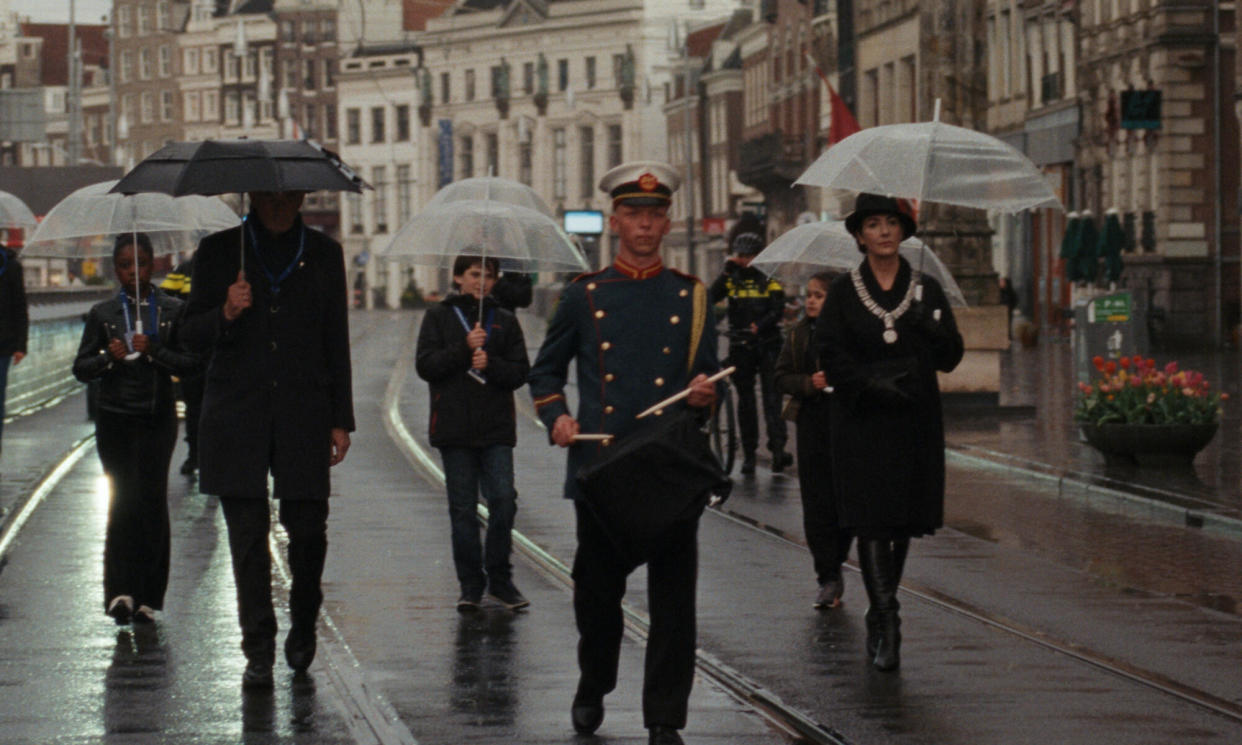Occupied City review – a mantra-like meditation on Nazi-occupied Amsterdam

Steve McQueen’s latest project – a marathon documentary about the Nazi occupation of Amsterdam that weaves together reflections on the past and the present – has an ambition and expansive scope to match the Small Axe films, but feels closer in approach to his early gallery installation work than it does to his narrative film-making.
It’s based on the exhaustively researched book Atlas of an Occupied City (Amsterdam 1940-1945), by the writer and film-maker Bianca Stigter, director of the excellent documentary Three Minutes: A Lengthening, and also McQueen’s wife. The film juxtaposes succinct narrated accounts of the wartime stories linked to particular addresses (predominantly but not exclusively focusing on the fate of Amsterdam’s Jewish residents), with contemporary footage of the same locations. There are moments of lyrical beauty, and what is never in question throughout the nearly four-and-a-half-hour running time is the love that McQueen feels for his adopted home city.
There is a meditative, mantra-like quality to the narration and its coolly reserved delivery by Melanie Hyams. But the thing about a mantra is that it starts to lose meaning after a while. And rather than achieving a cumulative power in these layers of tragedy, the effect can be rather numbing.
There’s another issue: much of the film was shot during the pandemic, so that footage of anti-lockdown protests features prominently; elsewhere, the narration details Amsterdam’s resistance to the German forces. You start to wonder, is McQueen suggesting an equivalence between the Netherlands’ Covid response and the experience of living under Nazi occupation? If that wasn’t the intention then the picture is misleadingly edited. If it was intended, then yikes.

 Yahoo Movies
Yahoo Movies 
